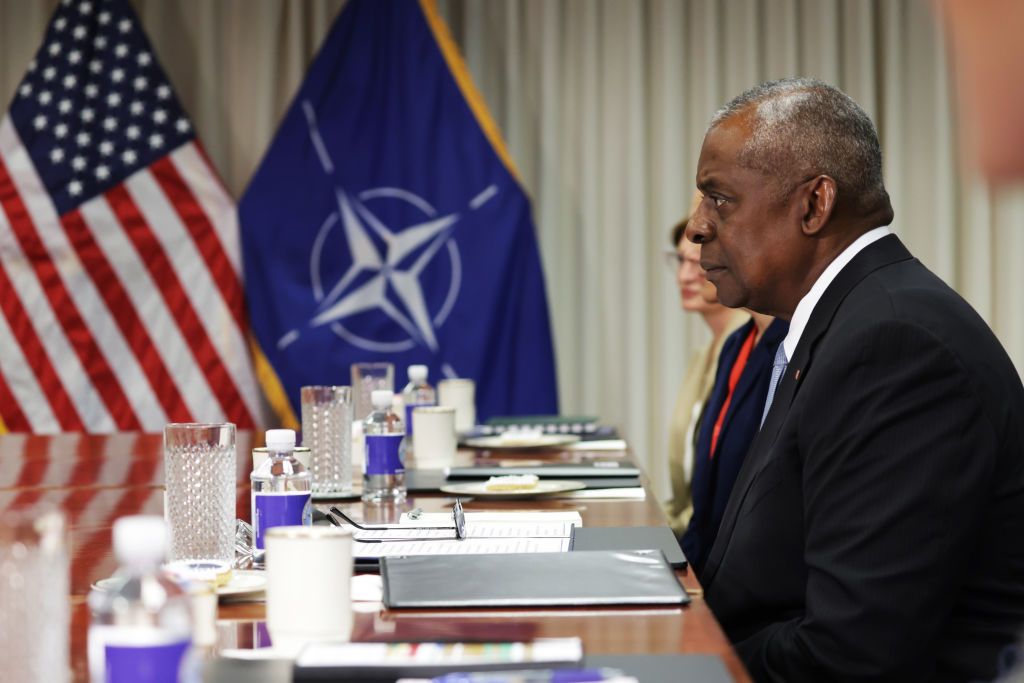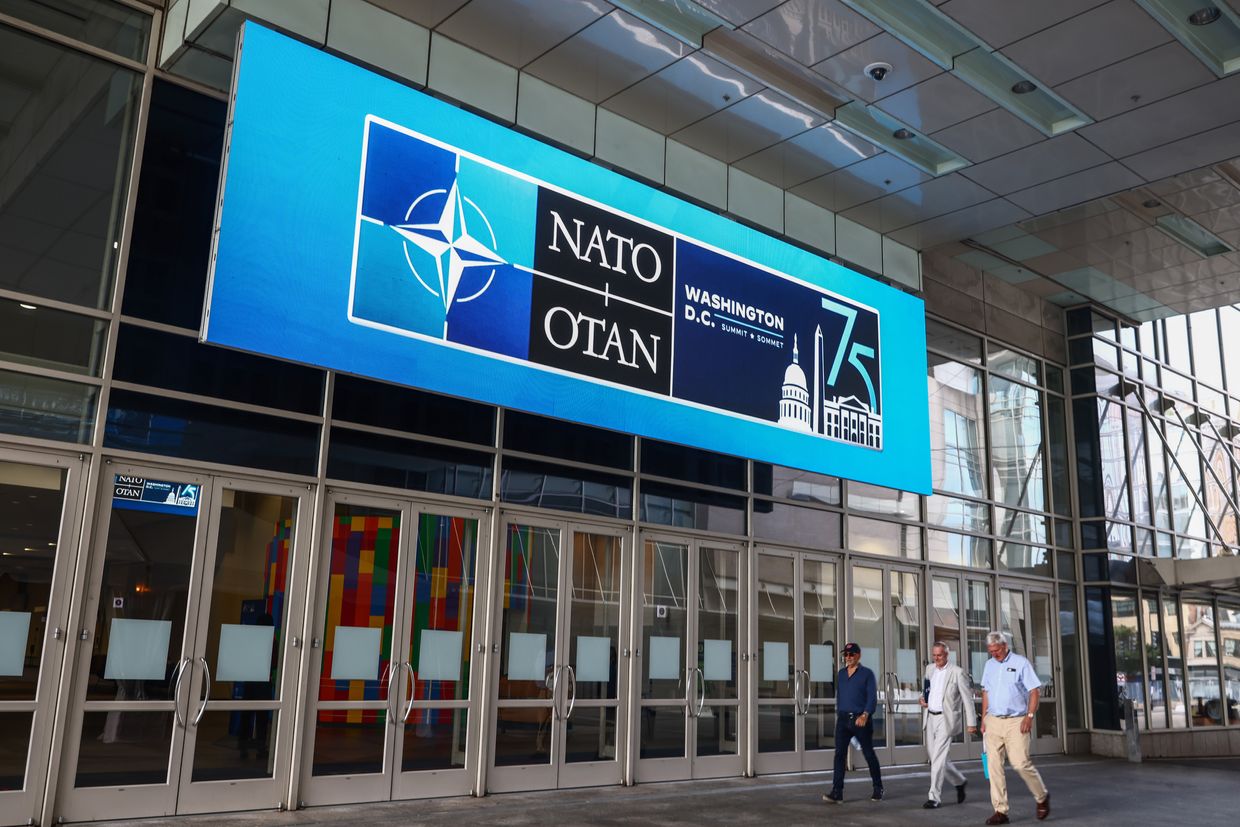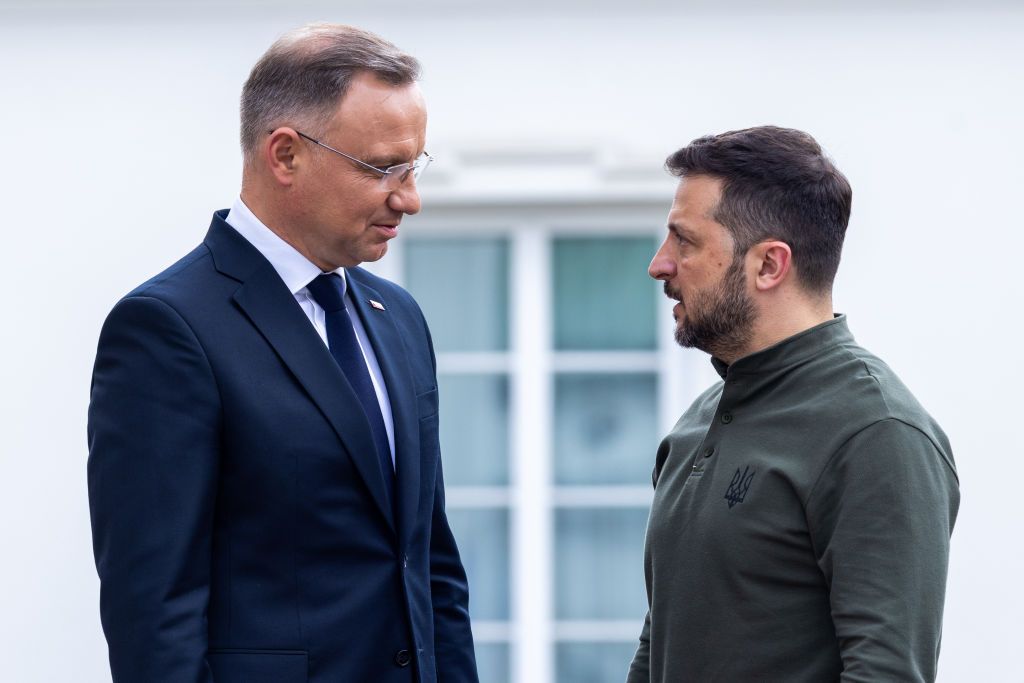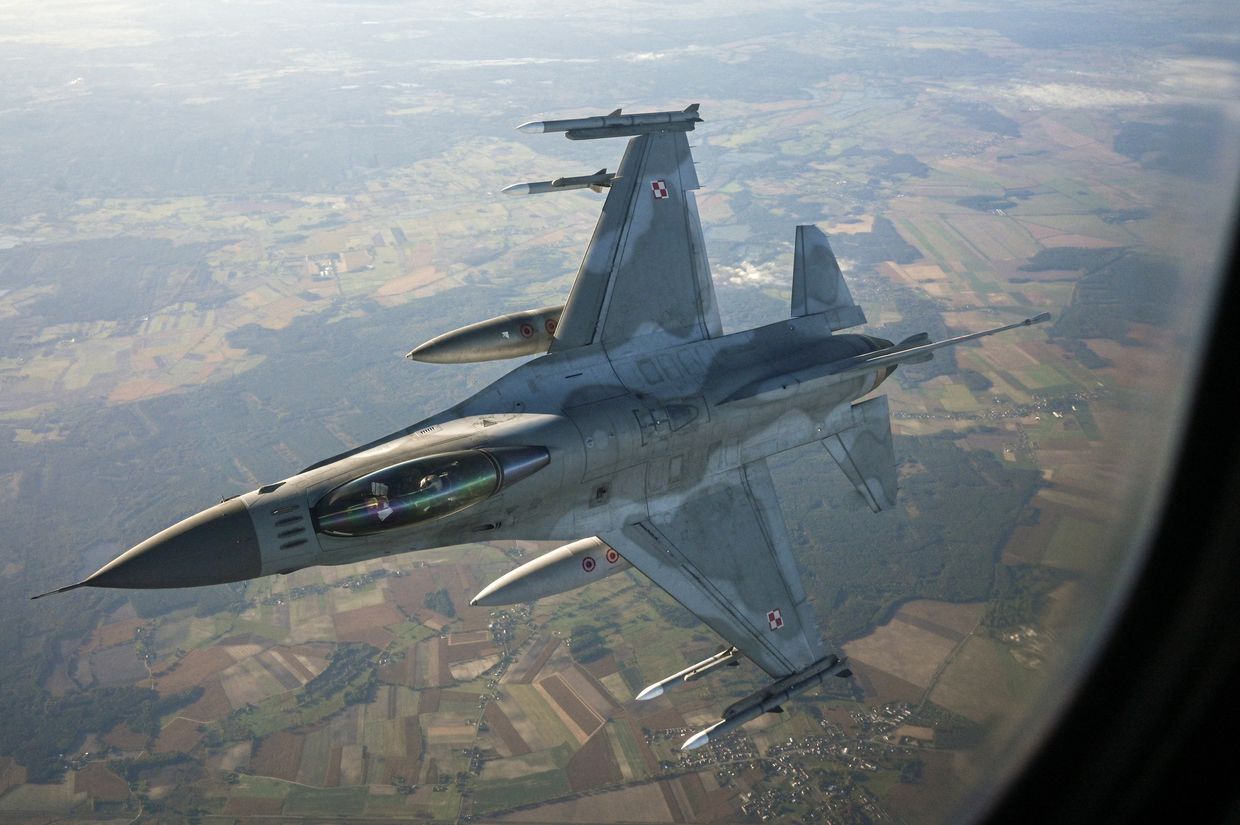While 75th birthdays are usually a cause for joy and celebration, NATO's marking of this milestone at a three-day summit in Washington from 9-11 July is likely to be a rather more muted affair.
Ukraine is understandably top of the agenda, with a Russian mass missile attack on July 8 that targeted hospitals, killed dozens and injured hundreds, adding to Kyiv's sense of urgency to secure what it needs to protect its people and fend off Russia's full-scale invasion.
A communique to be announced on July 11, 9 p.m. Kyiv time following the NATO-Ukraine Council, will confirm what has been agreed.
"I think the big outcome would be some kind of clarity on Ukraine’s pathway to NATO," General Mick Ryan, adjunct fellow at the Center for Strategic and International Studies, told the Kyiv Independent.
"Other key outcomes would hopefully include confirmation of NATO's ongoing support for Ukraine, commitment on munitions supply assurance and commitment on training Ukrainian forces, probably still outside Ukraine."
So what will Ukraine get? It's a mixed bag, a source in the Ukrainian government with knowledge of NATO negotiations who spoke on condition of anonymity, told the Kyiv Independent.
While there are a couple of bright spots, some of the big ticket items – namely NATO membership – remain a long way off.
F-16s
A statement on F-16 fighter jets will announce they will be on the battlefield "this summer," according to people familiar with the matter.
Ukraine has long-been preparing to receive dozens of the aircraft, with a recent uptick of Russian attacks on airfields likely an attempt to disrupt their arrival and deployment.
Although defense experts do not expect F-16s to become game-changers in the war, the jets may strengthen Ukraine's air defense capabilities, helping to prevent attacks like the devastating mass missile attack on July 8.
They will also challenge Russia's "full dominance" of the skies over the Black Sea, Navy Commander Oleksii Neizhpapa told Reuters in an interview published on July 5.
NATO membership
There's no avoiding the fact that Ukraine is still a long way from joining NATO.
One year on from President Volodymyr Zelensky's concerted but failed effort to get an invitation to join at last year's summit, Kyiv has since radically adjusted its expectations this time around.
"Of course we would like to get an invitation to join NATO," Oleksandr Merezhko, Ukrainian MP and chair of the parliament's foreign affairs policy, told the Kyiv Independent.
"But we understand that it's hardly something realistic as of now."
Instead, the final document will refer to Ukraine's "irreversible membership in NATO," the Ukrainian government source told the Kyiv Independent, a phrase noticeably lacking in any sort of timeline.

While some of the allies are in favor of Ukraine's accession, including France and the U.K., there are those who disagree, the source said. There are concerns that the reason is to keep Ukraine's membership as a bargaining chip in negotiation with Russia.
The question that remains open is whether the "irreversible membership" clause would be tied to any commitments from the Ukrainian side, among them Kyiv's need to implement ongoing reforms.
Nico Lange, Senior Fellow at Center for European Policy Analysis (CEPA), told the Kyiv Independent that Ukraine's non-membership of NATO is "exactly the gray zone Vladimir Putin tries to exploit."
"I'm afraid this will be perceived very positively in Moscow, it will be perceived as a success from the Kremlin point of view," he added.
But in Kyiv, with expectations lowered since last year, it's still being viewed on positive, if somewhat resigned, terms.
"Nevertheless, we would like to see in the final document of the summit, an indication that the process of joining NATO is irreversible, that it's only a question of time that Ukraine is going to join NATO," Merezhko said.
"That we're not discussing anymore whether or not Ukraine becomes a fully-fledged NATO member, but that we're only discussing when it will happen."
Air defense
As the Russian strikes on July 8 hammered home once again, Ukraine is still in desperate need of more air defense systems, in particular, the U.S.-made Patriot.
Earlier this month, U.S. Secretary of State Antony Blinken said Ukraine is expected to get "more news" on air defense at the summit.
The Ukrainian side is insisting on a declaration of the coalition on air defense and the announcement of 10 additional Patriot systems by the end of the year. The number is yet to be decided upon, with Ukraine previously saying that at least seven Patriot systems are desperately needed to protect the country's skies.
With limited numbers of Patriot systems in existence, and a reluctance from some countries to part with theirs, Ukraine has struggled to obtain them in the numbers needed to adequately protect the largest country in Europe.

While the source of the additional Patriots has not been confirmed as yet, it's likely linked to an Israeli decision earlier this year to mothball up to eight in its possession in favor of its own domestic versions.
One issue still under discussion but lacking a final decision, will be an integrated air defense system that would allow Romania and Poland to shoot down Russian missiles over western Ukraine.
Diplomatic and funding boosts
“Allies have provided approximately 40 billion euros worth of military support to Ukraine each year," Jens Stoltenberg, secretary general of NATO, said on May 31.
"We must maintain at least this level of support each year, for as long as necessary," he added.
The final communique will pledge $40 billion next year in NATO military aid, with annual contributions from member states, the Ukrainian government source told the Kyiv Independent.
It will also announce two significant diplomatic developments – firstly, there will be a meeting of all countries who have signed security agreements with Ukraine.
It's not yet known whether a formal agreement will be signed, but the deepening of cooperation and coordination between the signatory countries is expected.
Poland was the latest country to sign such an agreement with Ukraine based on a pledge made by the Group of Seven (G7) in July 2023.
Other states, including the U.S., the U.K., Germany, and France, as well as the European Union, have signed similar bilateral treaties to help Kyiv repel Russia's aggression.

Secondly, NATO will establish a new structure tasked with coordinating assistance and bringing the Ukrainian military closer to NATO standards.
Retired U.S. General Stephen Twitty, fellow at CEPA, told the Kyiv Independent such a move is “badly needed.”
“It will provide the face-to-face contact that’s so badly needed there,” he added.
According to a Washington Street Journal report on July 2, the mission is also part of the alliance’s effort to safeguard long-term aid for Ukraine should Donald Trump return to the White House after the U.S. presidential election later this year.
Ex-President Trump, the Republican Party's presumptive nominee, has repeatedly criticized NATO and assistance for Kyiv.
It's not currently known who will head the mission, though there will likely be a tussle divided by the Atlantic, with the U.S. pushing for an American and everyone else pushing for a European.













